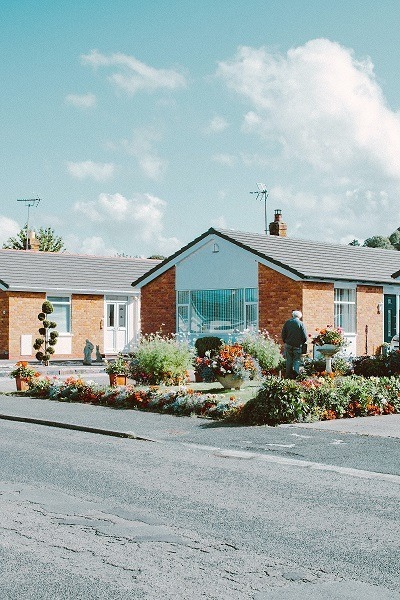
What is going on? Property values might level off, but the mortgage rate is the latest thing to soar. The typical rate is up by 2% over December 2021. So the hopeful home buyer continues to face difficult decisions.
Many people are wondering how long it will take for a normal market to return. Here’s what we can tell now.
So, the Home Buying Frenzy Is Finally Showing Signs of Slowing?
At some point, it has to slow down. Those 15% and even 20% annual rises in home values we’ve recently witnessed? They have created the longest property value surge we’ve ever seen. This market dynamic is just not sustainable.
And mortgage rates are quickly rising, making homes of all price categories much costlier to own in 2022 than they were just a year before. Home buyers in March 2022 could have locked in a 4% interest rate on their home loans. By the end of April, rates were above 5%.
Higher mortgage rates put brakes on the real estate market. With rates climbing, people will lose the stomach for bidding wars.
In light of the sudden rise in interest rates in 2022, Zillow thinks the market will go from red-hot to simply hot, and that prices will still rise more than 11% year-over-year heading into 2023. In fact, the company predicts that the market won’t return to a normal rate of price inflation (which is somewhere around 5%) until 2024.
But CoreLogic® researchers think we’re already downshifting into a normal rate of growth in the market. The CoreLogic HPI Forecast predicted a median home price increase of 5.9% from March 2022 to March 2023. And the possibility of a recession is another factor to watch, because it means fewer people will prepare to make large purchases. During recessions, people need to think carefully about the stability of their sources of income. And when vetting mortgage applications, lenders will be taking a hard look, too.
A Crash? Unlikely.
Millennials and younger people are still out there, trying to buy. Lots of them. There aren’t enough homes to go around.
People are not rushing to sell at this time. Many are unwilling or unprepared to sell if it means they’ll have to buy again in this competitive real estate market. Not only are property values sky-high. Mortgage rates may be higher than what many now have on their current loans.
This imbalance will take more than five years to smooth out. This makes a market crash highly unlikely.
We’re not likely to witness a flood of foreclosures, either. Lenders’ vetting criteria are just too strict, and that means today’s mortgage holders are financially stronger, and better poised to weather an economic downturn than they were in 2007, before the infamous housing bubble burst.
Since 2020, homeowners have accrued significant equity in their properties. Their current home valuations will help them weather a downturn in the market.
On top of this, lenders are cautious, and they’re refusing to issue home equity loans that leave people at high risk. All of this should keep the housing market relatively safe over the next five-year period.
Staying Out for Now? Or Jumping In? Here Are Some Key Considerations.

Here are the main features we see in the current market:
- Mortgage rates have risen above 5% but they are still low, relative to historical averages.
- As long as mortgage rates continue to rise, buyers who lock in a rate now can avoid higher monthly payments later. At the same time they can free themselves from rent, which keeps rising to account for inflation.
- Rents are expected to go up rapidly. Some renters might decide to buy in order to obtain a fixed-rate, predictable house payment.
- At tax time, mortgage interest deductions help offset the cost of the yearly home loan expenses.
- Those who can buy now may profit — if home values continue to rise at the rate Zillow predicts.
The key downside risk is that the low supply of homes plus inflation could send the U.S. economy into “stagflation” mode and depress prices — especially if we’re entering a recession.
Why Aren’t Builders Building More?
For one thing, there aren’t enough construction workers. Building companies cannot move as quickly as they’d like due to a worker shortage, combined with the high costs of materials in this inflationary environment.
So, housing supply will keep running behind demand in many markets.
Another reason for the tight supply involves zoning. Builders can’t increase housing density in places where local zoning restricts them to single-unit housing on a given property.
To encourage the creation of more housing for more people, upzoning is making headway in some of the nation’s tightest markets.
What If You Buy Now, and the Market Trends Down?
Buyers understandably hesitate to pay for real estate if they think the market is peaking. After buying, if homes in the area begin to go down in price, new owners feel anxious. If the market in a given area drops, buyers’ home equity sinks along with it.
Home is where most of our wealth is. It’s natural and normal to wonder about the impact of the market on our financial futures. And “buying at the top” is no joy. But in the big picture, the cycle will continue, the market will recover, and those who are prepared to hold onto their homes will get through the lows.
☛ With the market decelerating now, a buyer has no guarantee that a home will appreciate in value quickly. Even so, it’s true that buying a home can offset inflation.
It’s a good idea to ask: Can I deal with the situation if my property value goes down 20% in the next five years?
To avoid painful losses, borrowers should be prepared to stay in their homes for long enough stretches to weather the market’s cycles. Mortgage companies will want borrowers to keep an emergency savings buffer, and to keep monthly housing costs at or below 30% of the household’s income.
The Upshot?
The real estate market is still intense! Predictions for the next few years suggest it’s going to stay that way, although we’re coming off the highs of the 2020-21 seller’s market.
It’s notoriously hard to time the market. Buyers should make their moves because they want to buy, can afford to buy, and plan to live in a house for years, giving their equity a chance to rise.
Supporting References
Lance Lambert for Fortune.com: The Housing Market Boom Has at Least Another Year to Run, Zillow Economists Predict (May 24, 2022).
Natalie Campisi for Forbes Advisor: Will the Housing Market Crash? Experts Give Five-Year Predictions (updated May 4, 2022).
Vivekanand Jayakumar for The Hill: Opinion – Is the U.S. Housing Market Headed for a Price Correction? (Apr. 27, 2022).
CoreLogic.com Economy Team: Intelligence – U.S. Home Price Insights (May 3, 2022; based on the CoreLogic® HPI Forecast).
Mike Valerio for WALB News 10 (Albany, GA): “I Don’t See a Crash” – Real Estate Experts Say the High Price of Rentals and the Housing Market Is Expected to Continue (Apr. 29, 2022; CNN Newsource / Gray Television).
Photo credits: Liza Summer and Lisa Fotios, via Pexels.
